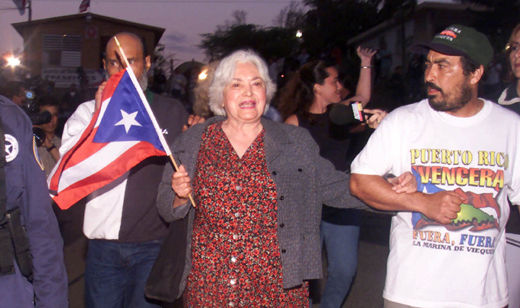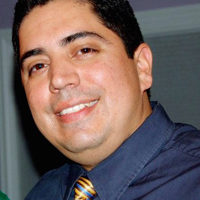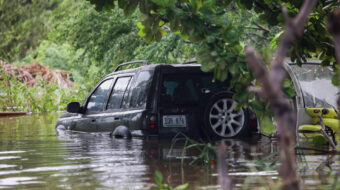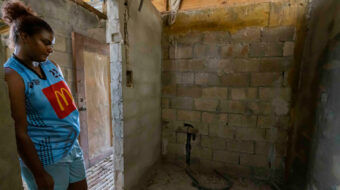
Lolita Lebron, a Puerto Rican freedom fighter widely known as the mother of the island’s independence movement, died Aug. 1, in San Juan at age 90.
Lebron is most remembered for leading an armed attack on the U.S. Capitol in 1954. She and three other Puerto Rican nationalists opened fire from an upstairs spectators’ gallery onto the crowded floor of the U.S. House of Representatives.
Lebron unfurled a Puerto Rican flag and shouted, “Viva Puerto Rico libre!”
No one was killed in the attack but five U.S. representatives were wounded.
Lebron was sentenced to more than 50 years in prison. She was in jail for 25 years until President Jimmy Carter granted Lebron and her comrades clemency in 1979.
Lebron later said that she never intended to kill anyone and that all four nationalists expected to be killed in the attack.
Police found a note in her purse that said, “My life I give for the freedom of my country.” The note continued, “The United States of America is betraying the sacred principles of mankind in their continuous subjugation of my country.”
“I am a revolutionary,” she said at the time. “I hate bombs, but we might have to use them.”
After their release from jail, Lebron and the others were widely celebrated and received a warm welcome from independence activists in Puerto Rico. Lebron became a symbol of nationalist pride and continued to protest U.S. involvement on the island.
Delores “Lolita” Lebron Sotomayor was born Nov. 19, 1919, in Lares, Puerto Rico. Lares the village where, in 1868, local residents rose up against the Spanish colonizers in a rebellion that became known as El Grito de Lares (the cry of Lares).
The U.S. claimed Puerto Rico as a U.S. territory after the Spanish-American War and it was made an American commonwealth in 1952.
Lebron’s father was a coffee farmer and her mother was a homemaker. As a teenager she won first place in the annual “Queen of the Flowers of May” beauty contest. She also joined the Liberal Party as a youth.
In 1937 a group of activists from the Puerto Rican Nationalist Party were killed during a peaceful protest, which became known as the Ponce massacre. Lebron was only 18 at the time, but the incident impacted her life.
In 1941 Lebron migrated to New York City where she worked as a seamstress in several factories and found herself the object of racial discrimination. She was fired on several occasions and her bosses considered her a “rebel” after she protested against the exploitation she witnessed against Puerto Rican workers.
Lebron grew increasingly frustrated with the way Puerto Ricans had to live in poverty and social decay. In 1946 she joined the Puerto Rican Nationalist Party, led by independence fighter Pedro Albizu Campos. Lebron quickly became a leader in the party becoming its secretary, vice-president and executive delegate of its New York delegation.
After Puerto Rico’s official status was changed to a “commonwealth,” the Nationalist Party began a series of revolutionary actions for independence including Lebron’s 1954 attack.
Lebron was an advocate for women and children’s rights and fought for a more equitable economic system. Her ideals were based on socialist and feminist principles.
In 2001, she was arrested at age 81 while protesting the U.S. military’s use of the Puerto Rican island of Vieques as a bombing range. She was sentenced to 60 days in jail for trespassing.
After wide protests the U.S. finally closed the bombing site in 2003.
Today independence fighters say Puerto Rico is a U.S. colony and the people should have the right to self-determination and decide their own national sovereignty.
In recent years Lebron said the fight for social justice could be won without violence.
“I think times have changed, and there is no need now to kill for freedom,” she told El Mundo newspaper in 1998. “I would not take up arms nowadays, but I acknowledge that the people have a right to use any means available to free themselves.”
Lebron will be remembered as a heroic, leading figure in the Puerto Rican people’s struggle for justice, equality and freedom.
Photo: Lolita Lebron and a fellow activist are taken by a U.S. federal agent into Camp Garcia on the island of Vieques, Puerto Rico, the morning of May 4, 2000, after she and other protesters blocked the U.S. Navy bombing range there. (AP/John Riley)












Comments